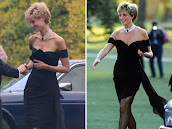However, my worries didn't do the season justice. It is extraordinarily well-acted (hey, Jonny Lee Miller plays Prime Minister John Major!) and despite protests from various parties, impressively well-balanced since it presents events without commentary.
It also has an interesting theme. Prince Philip, played by Jonathan Pryce, delivers that theme when he instructs Diana that she is part of a "system" and her job within that system is to find a way to be happy, as he has done, rather than fight it.
Now--I don't necessarily agree with this approach to life. But the validity of Phillip's position is underscored by an unstated reality: none of the parties, including Diana, are willing to give up the benefits of the system, much like current elites will criticize hidebound institutions but not leave them. At one point, Charles argues that if he had been born outside the royal family, he would be head of a company "by now." Interestingly enough, in his book about leaving the Catholic priesthood, the author Gabriel Longo points out that many Catholic priests in the mid-twentieth century--who did absolutely nothing but live a paid-for existence--clung to the same delusion: they were incipient CEOs despite having no clue what such a job actually entailed, especially if one isn't surrounded by sycophants.
There were priests who knew they weren't "all that." Queen Elizabeth II of The Crown mostly knows this. She knows the bitter costs of her job. But she is surrounded by family members who want the benefits while complaining about the costs. None of them actually, fully, leave and enter careers that entail crawling up the ladder.
Season 5 of The Crown does give Charles fair dues for slowly accepting that he needs to start establishing his own "court" and making a more positive impression on the public, like when he sets up The Prince's Trust. Overall, Charles comes across as a man who is trying--however badly and self-servingly--to connect with others. He can see the solution even if he focuses mostly on how it reflects upon himself.
Diana, however comes across again and again as someone for whom the recipients of her charity are not entirely real--if anyone is. I never particularly cared for Diana, and Season 5 is more critical of
her than Season 4. However, her inherent value as a public figure is acknowledged while the predator-nature of the British and European
press is certainly brought home.
And yet the audience is shown--based on reliable documents--a Diana who again and
again gives up a secure or potentially useful or simply happy situation
to pair herself with someone who is equally weak, equally unsure,
equally lacking in a purpose, equally borderline nuts. Nearly everyone she encounters becomes a figure in her soap opera, an actor in her performance, a mirror to her self.
Even if life is one big conspiracy, who cares? But Diana is constitutionally invested in caring. She comes across as almost a Greek tragedy character because her vulnerability is so deeply
embedded and embraced by herself.
Sad. The most basic answer to dealing with people who won't support the person you actually are is to walk away. Diana, however, keeps circling the edges: Love me, love me, love me. She diagnoses the royal family, then refuses to believe in her own diagnosis.




No comments:
Post a Comment